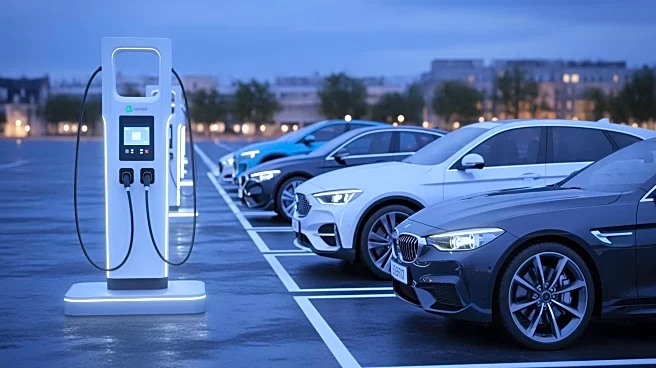What's Happening?
U.S. light-vehicle sales data for October and year-to-date 2025 reveal mixed results across different nameplates. Rivian reported a Q3 net loss of $1.2 billion, despite a 78% revenue increase to $1.6 billion, driven
by a 32% increase in vehicle sales as consumers rushed to take advantage of the expiring EV tax credit. The expiration of the federal tax credit for electric vehicles has influenced consumer purchasing behavior, leading to a surge in sales before the credit ended.
Why It's Important?
The expiration of the EV tax credit has significant implications for the electric vehicle market, as it affects consumer incentives and purchasing decisions. The surge in sales prior to the credit's expiration indicates strong consumer interest in EVs, but future sales may be impacted by the loss of this financial incentive. Automakers will need to adjust their strategies to maintain sales momentum in the absence of the tax credit.
What's Next?
With the tax credit expired, automakers may explore alternative incentives or pricing strategies to attract consumers to electric vehicles. The industry will be closely monitoring sales trends to assess the impact of the credit's expiration and adapt accordingly. Policymakers may also consider new measures to support the growth of the EV market and encourage sustainable transportation.









